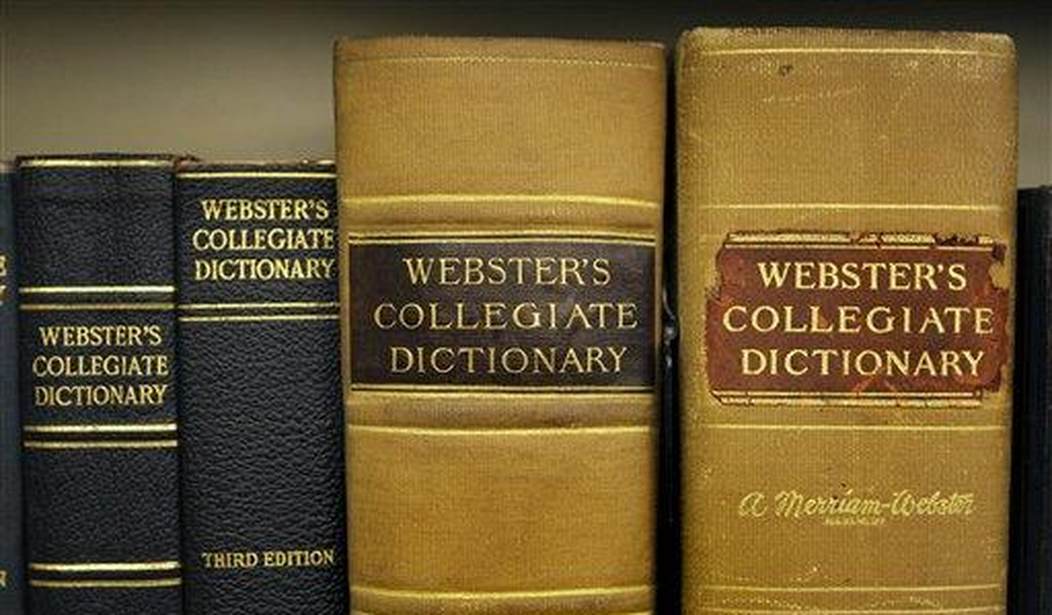This week we learned that Merriam-Webster updated its definition of “female” to include “having the gender identity that is opposite of male” and vice-versa for the definition of male.
In George Orwell’s classic novel 1984, the Newspeak dictionary is the compendium of the language that the fictional country of Oceania used. What makes the dictionary particularly unique is not so much that it was always changing but that words were being taken out constantly to reduce the ability of the population to commit thoughtcrime or thoughts not approved by the Party. The ultimate goal is that, eventually, the language would be small enough that thoughtcrime is impossible.
Related: Why Is Conservative Media Calling a Male Rapist by Feminine Pronouns?
I wish I could say it is hyperbole to suggest that such a thing would be unfathomable in real life, but it’s not. It’s happening right now — though in a slightly different way. Instead of words being removed to make thoughtcrime impossible, our language is being expanded to brainwash young people and make thoughtcrime more likely.
One popular publisher of dictionaries, Merriam-Webster, has been leading the way in this effort. In recent years, Merriam-Webster has updated the definition of racism to include “systemic racism” and revised its second definition of racial “color-blindness” so that you can still be racist if you treat all people the same regardless of race — essentially declaring that you’re racist even when you’re not. To say these changes aren’t part of a political agenda is simply wrong. For example, in 2020, it updated the definition of “sexual preference” to declare the term offensive after Amy Coney Barrett used it during her confirmation hearings.
I’ve observed that big tech censorship would ultimately result in the political right and the political left having truly separate digital ecosystems for social media, streaming, fundraising, banking, etc., but the problem is worse. I’m starting to believe that we must add dictionaries to the list. As sad as it sounds, we might need a non-woke dictionary to preserve our language before the radical left corrupts it.
The good news is that Merriam-Webster is just one publisher of dictionaries. There are plenty of others out there to choose from. So, the question is, how good are they?
Let’s take a look. I’ve gone on Google and searched for “dictionary” and reviewed the definition of “female” in the top responses to see how many include “gender identity” in their definition.
- Dictionary.com: ❌
- Merriam-Webster: ✔️ “having a gender identity that is the opposite of male.”
- Cambridge Dictionary: ❌
- Britannica: ❌
- YourDictionary: ✔️ “Belonging to the feminine (social) gender; identifying one’s gender as feminine (see gender identity).”
- Macmillan: ❌
It was somewhat surprising that only two of the top returns for “dictionary” included gender identity in their definitions of “female,” yet it’s somewhat encouraging. Granted, there are plenty of other opportunities for the holdouts to go woke with how they define words. The question remains: do we need a new dictionary that we can trust to never go woke?
Unfortunately, I think we might.










